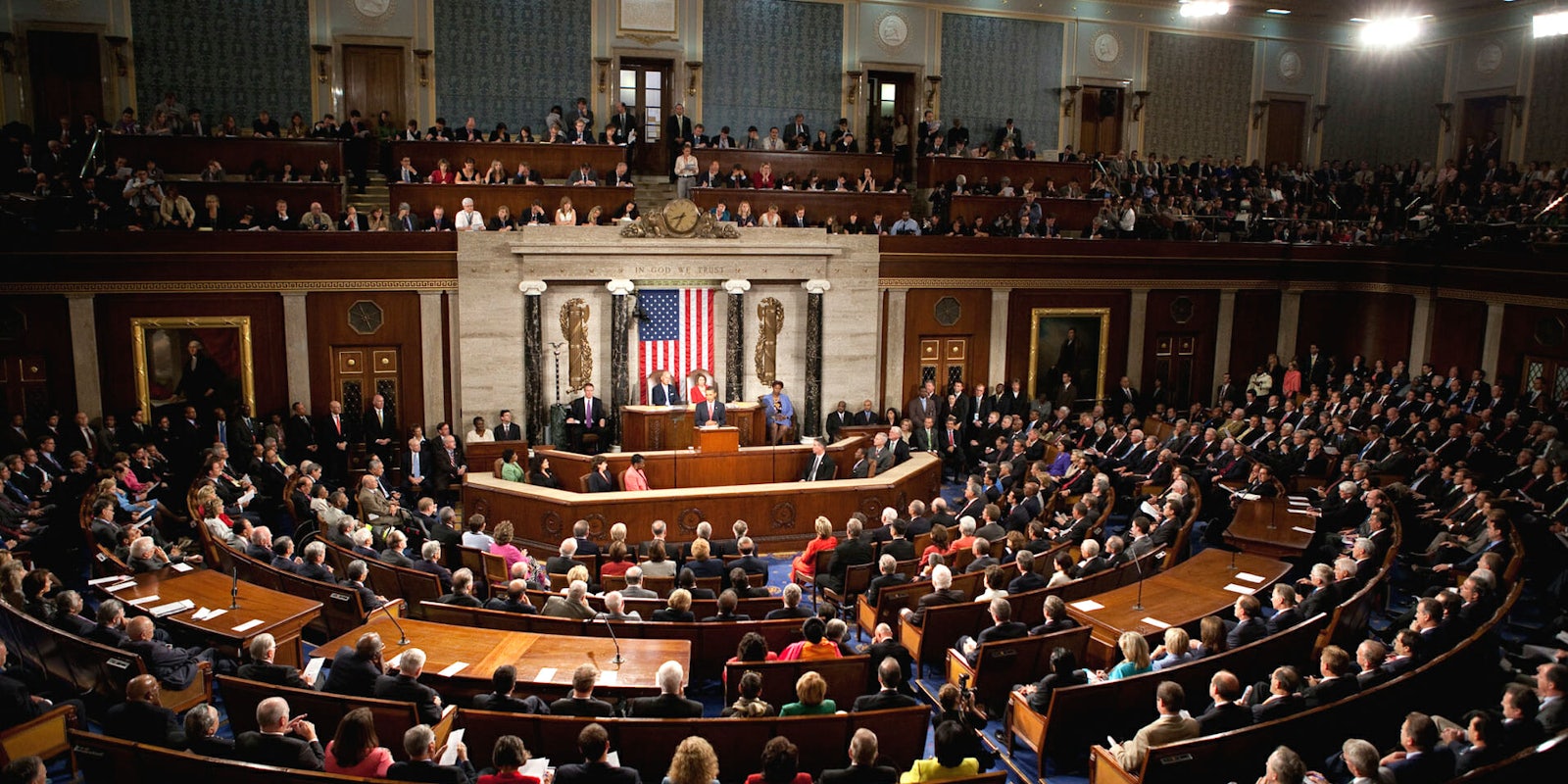Few Supreme Court decisions have changed American politics as drastically as 2010’s Citizens United, which unleashed a torrent of cash into the political system. Fewer still prompted such a negative public reaction: A recent poll conducted by Bloomberg found that an overwhelming majority of Americans aren’t happy with the results.
The poll surveyed 1,001 U.S. adults over the age of 18. It found 78 percent of respondents feel the Supreme Court’s decision that “corporations and unions may spend unlimited amount on political causes” should be overturned, while only 17 percent approved of the court’s actions. Four percent were undecided.
Bloomberg Politics noted that negative sentiment toward Citizens United was strong on both sides of the aisle. Eighty percent of Republicans opposed the ruling, as did 83 percent of Democrats.
Pollsters also asked about a handful of other Supreme Court rulings; however, Citizens United was the only decision a majority of respondents said should be overturned. Rulings upholding the Affordable Care Act’s individual mandate, legalizing same-sex marriage, and granting women the Constitutional right to have an abortion all had significantly more support than they did opposition.
Decided in early 2010, Citizens United v. Federal Election Commission centered around a movie. A conservative lobbying group called Citizens United produced a film attacking Hillary Clinton and wanted to show ads of it on TV during the 2008 presidential campaign. Campaign finance rules passed in 2002 prohibited that from happening and the group sued. The case made its way up to the Supreme Court, where its five conservative justices issued a ruling equating political donations to First Amendment-protected free speech granting it sweeping protections.
The decision altered Washington almost overnight. It triggered an explosion in new super PACs—independent groups not directly affiliated with any campaign that are able to raise and spend as much as they want on any given campaign.
Within a few short years, super PACs have arguably become the single most important actors in American politics, and their growth shows no signs of slowing. According to a report by the Center For Responsive Politics, outside political organizations have spent over $25 million so far in the 2016 election cycle. That’s a 34 percent increase over this same point in the 2014 cycle and a five-fold jump above the 2012 election.
Not only are super PACs raising bigger bucks than ever before, but they’re also building themselves into the heart of campaigns. This is despite language in the court’s ruling to block direct coordination between outside groups—which are allowed to raise unlimited funds—and the campaigns themselves, which still have to abide by fundraising limits.
Right To Rise, the super PAC backing former Florida Governor Jeb Bush, has raised over $100 million and is taking over many of the responsibilities traditionally handled by campaigns themselves. Bush has headlined numerous Right To Rise fundraisers and, under the Federal Election Commissions interpretation of the Citizens United, that does not meet the government’s standard for direct coordination.
The two leading Democratic presidential candidates, Clinton and Vermont Senator Bernie Sanders, have both come out against Citizens United, arguing that it should be overturned and supporting a constitutional amendment to accomplish that.
Another Democratic candidate, Harvard professor Lawrence Lessig, has made that fighting the effects of Citizens United the centerpiece of his campaign. Lessig has pledged that, if elected, he would enact a massive reform to get big money out of politics and then immediately resign the presidency.
H/T Bloomberg Politics | Photo by Lawrence Jackson/Wikimedia Commons (public domain)
